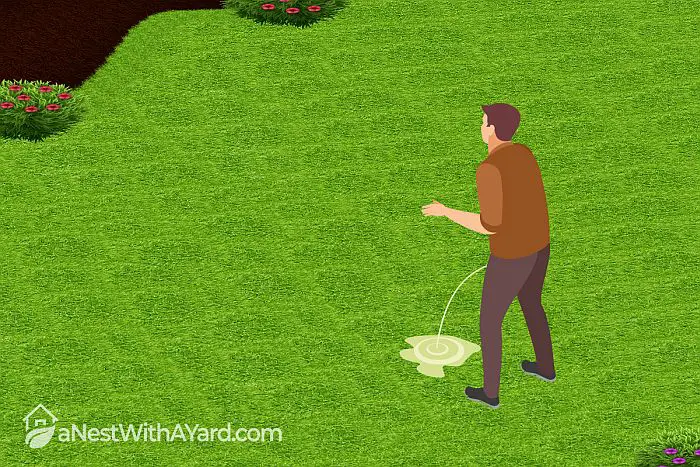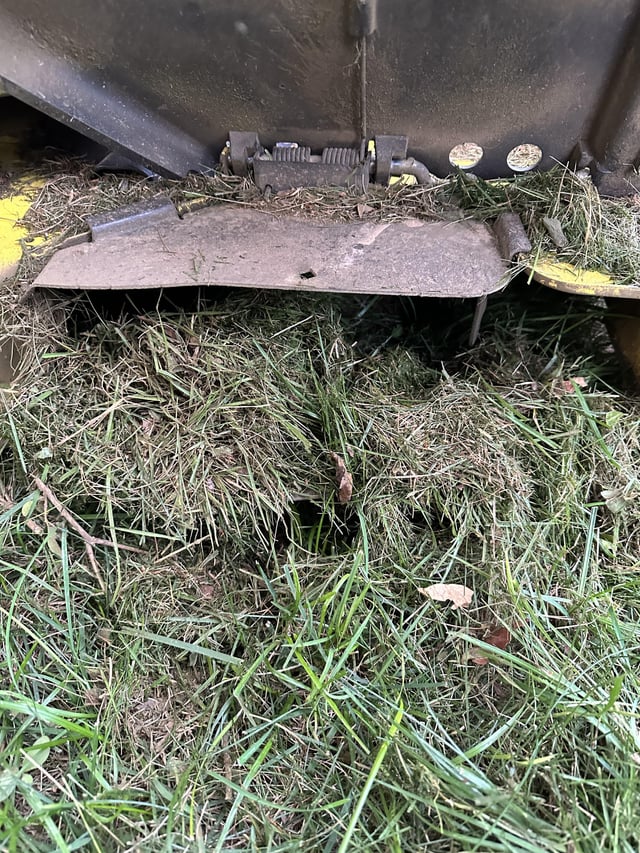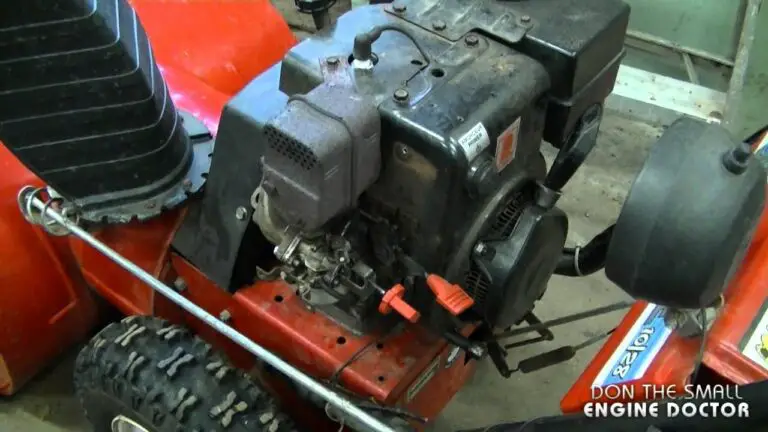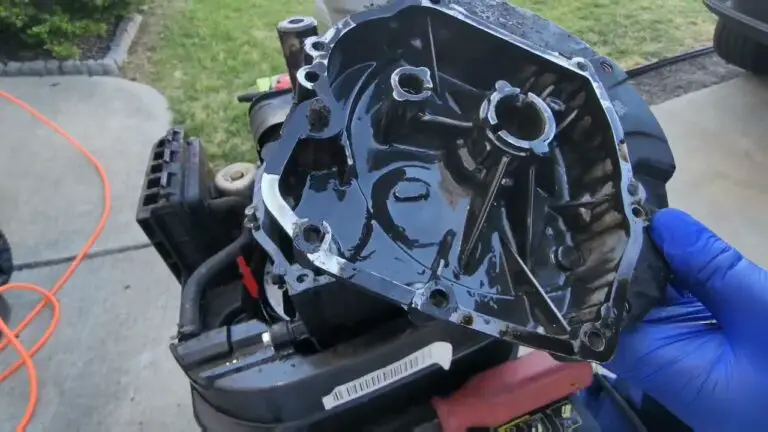Peeing in the garden can kill grass because human urine contains high levels of nitrogen, which can burn and damage plants. Introducing nitrogen-rich substances to the garden, such as fertilizers, is a common practice to enhance grass growth.
However, when it comes to using urine as a natural alternative, some concerns arise regarding its potential impact on plants. Human urine contains a significant amount of nitrogen, an essential nutrient required for plant growth. Nonetheless, the concentration of nitrogen in urine is much higher than what plants typically receive and can pose a threat to their well-being.
This article will explore the effects of human urine on grass, investigating whether peeing in the garden indeed kills grass or if there are other considerations to take into account.
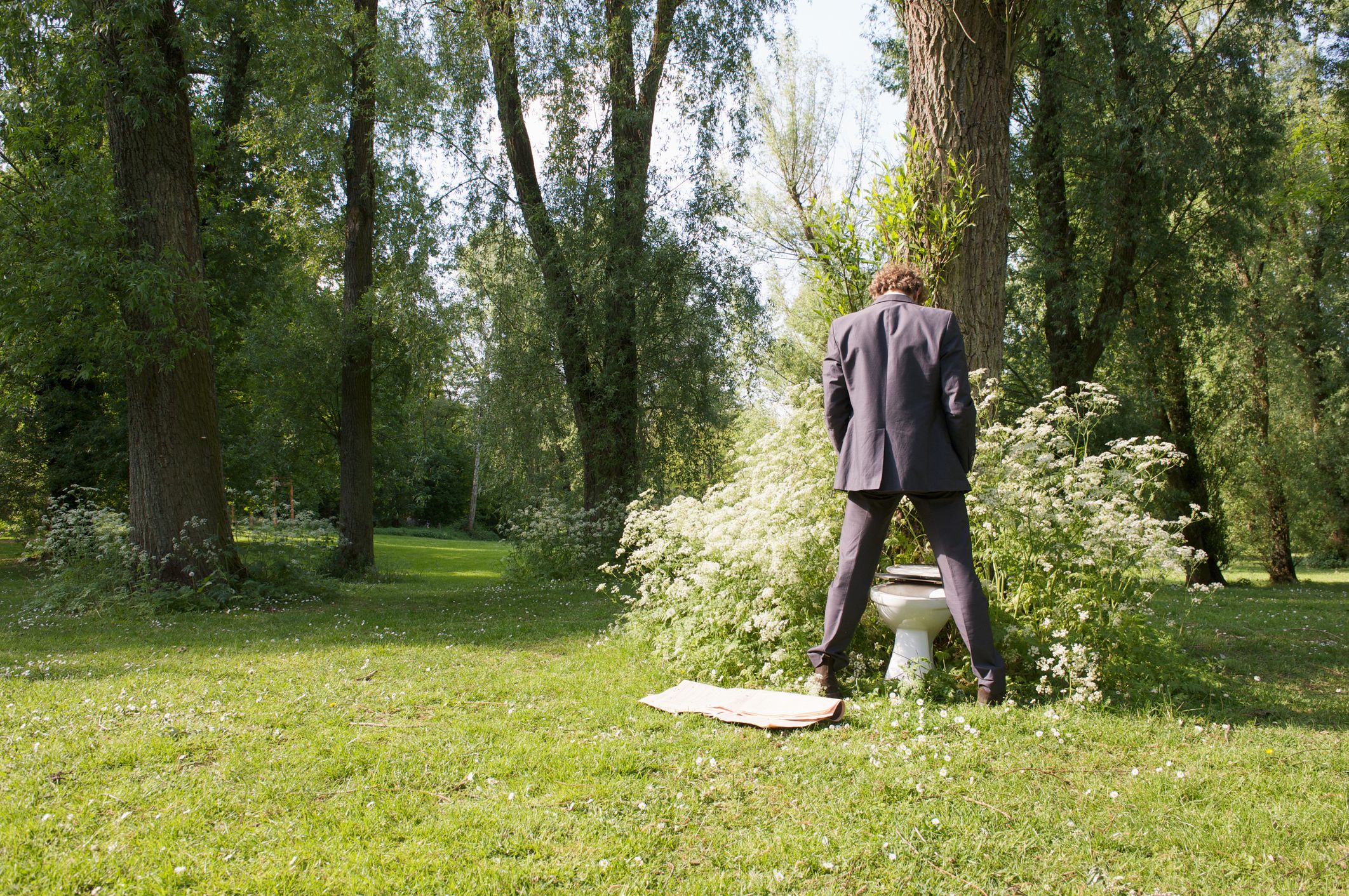
Credit: www.popularmechanics.com
Understanding The Chemical Composition Of Human Urine
Human urine is a complex mixture of various substances, with its chemical composition playing a significant role in its effects on grass health. From nitrogen to salts and other nutrients, urine contains components that can either benefit or harm the growth and overall wellbeing of your grass.
Let’s delve into some key points to better understand the impact of these components.
Components Of Human Urine That May Affect Grass Health
- Nitrogen: One of the primary components of urine that can influence grass health is nitrogen. Nitrogen is an essential nutrient for plant growth, promoting lush, green foliage. However, excessive amounts of nitrogen can lead to an imbalance and cause the grass to burn or turn yellow.
- Salts: Another factor to consider is the presence of salts in urine. Salts, such as sodium chloride, can elevate the salt content in the soil, potentially leading to desiccation and decreased water uptake in grass roots. This can result in dry patches or even death of the grass in severe cases.
- Other nutrients: Besides nitrogen and salts, urine also contains various other nutrients, including phosphorus and potassium, which are essential for healthy plant growth. However, their quantities in urine are relatively low, so their impact on grass health is less significant compared to nitrogen and salts.
How These Components Can Impact Grass Growth And Health
- Nitrogen can act as a fertilizer when applied in moderation, resulting in a greener and more vibrant lawn. However, excess nitrogen can lead to nutrient imbalances, causing the grass to suffer from burns and discoloration.
- Salts, when present in high concentrations, can prevent the grass from absorbing water properly, leading to dehydration and potential damage. Areas with high salt content may exhibit brown patches or stunted growth.
- While other nutrients in urine are beneficial in smaller quantities, their overall impact on grass health is minimal compared to nitrogen and salts. Therefore, it’s crucial to focus on managing nitrogen and salt levels to maintain optimal grass growth and health.
Understanding the chemical composition of human urine allows us to comprehend the potential effects it can have on our beloved lawns. By managing the nitrogen and salt content, we can harness the benefits of urine as a natural fertilizer while avoiding any detrimental consequences on grass health.
Debunking The Myth: Is Human Urine Harmful To Grass?
It’s a common belief that human urine can kill grass, but is there any truth to this age-old myth? Let’s separate fact from fiction and delve into the science behind the effects of human urine on our beloved green lawns.
Dispelling Common Misconceptions About Urine’S Effect On Grass:
- Urine is not directly harmful to grass. Contrary to popular belief, the composition of human urine does not contain substances that are toxic to plants or grass. So, you can rest assured that your urine won’t instantly turn your lawn into a barren wasteland.
- It’s all about concentration. While urine itself is not harmful, the high nitrogen content in it can cause damage if it’s too concentrated in one area. The excessive nitrogen can essentially “burn” the grass, resulting in yellow or brown patches. However, proper dilution can mitigate this issue.
Scientific Research On The Impact Of Urine On Grass:
- The university of california conducted a study on the effects of urine on turfgrass. The research concluded that if urine is properly diluted, it can even provide a beneficial source of nitrogen for the grass. Dilution is key to preventing any negative impact on the lawn.
- Another study published in the journal of environmental quality found that urine application on grass had minimal negative effects when properly diluted, emphasizing the importance of dilution in reducing any potential harm.
The Role Of Dilution And Frequency Of Urine Application:
- Dilution is crucial. To mitigate any damage to the grass, it’s recommended to dilute the urine by watering the area immediately after urination. This helps to distribute the nitrogen evenly and prevents it from concentrating in one spot.
- Frequency matters. Regular urine application in the same area can lead to nitrogen overload. Consequently, it’s advised to vary the locations on the lawn where you urinate to avoid excessive nitrogen levels.
So, the myth that human urine kills grass is officially debunked. While it’s important to practice proper dilution and vary the application areas, your urine can actually provide a natural source of nitrogen for your lawn. Next time you find yourself needing a quick trip to the garden, you can rest easy knowing that your grass won’t suffer any ill effects.
The Importance Of Properly Using And Managing Human Urine In The Garden
Peeing in the garden may sound like a peculiar topic, but there is much debate surrounding the effects of human urine on grass. Does it really kill grass? Can it be used as a fertilizer? These are the questions we aim to address in this blog post.
In this section, we will focus on the importance of properly using and managing human urine in the garden. So, let’s dive in and explore the guidelines for using urine as a fertilizer for grass.
Guidelines For Using Urine As A Fertilizer For Grass:
- Dilution is key: To prevent burning the grass, it is important to dilute the urine before applying it. Aim for a dilution ratio of 10 parts water to 1 part urine.
- Spread it out: Instead of concentrating the urine in one spot, make sure to evenly distribute it across the lawn. This helps in preventing any potential damage to the grass.
- Avoid overapplication: Although urine contains beneficial nutrients for plants, excessive application can do more harm than good. Avoid using urine as a fertilizer too frequently to prevent nitrogen overload.
- Time it right: The best times to apply urine as a fertilizer are during the early morning or late evening. This allows the grass to absorb the nutrients before exposure to direct sunlight, reducing the chances of burning.
Understanding the ideal dilution and application methods is crucial for effectively using urine as a fertilizer. However, there are additional factors to consider when incorporating this unconventional approach in your garden.
Factors To Consider When Using Urine As A Fertilizer:
- Soil type: Different soil types have varying capacities to retain and absorb nutrients. Understanding your soil composition can guide you in determining the appropriate amount of urine to use.
- Grass species: Some grass species may tolerate urine better than others. Research the specific grass type in your lawn to ensure it can handle urine as a fertilizer.
- Weather conditions: The weather can greatly influence the impact of urine on grass. Hot and dry conditions may intensify the concentration of nitrogen, increasing the likelihood of damage. Adjust your urine application accordingly.
- Proper hygiene: It is crucial to prioritize hygiene when using urine in the garden. Ensure that the urine used is free from any medications or substances that can have negative effects on plants.
By taking these factors into account, you can make the most effective use of urine as a fertilizer for your grass, promoting healthier and greener lawns. So, next time nature calls, don’t be afraid to consider this alternative approach to nurturing your garden.
Alternatives For Managing Urine In The Garden
Utilizing Designated Areas Or Composting Toilets For Urine Disposal
One alternative method for managing urine in the garden is to designate specific areas or install composting toilets for urine disposal. Here are some key points to consider:
- Designated areas: Creating a designated spot in your garden where you can direct urine can help minimize its impact on the grass. This can be achieved by sectioning off a discreet area or using urine diverter devices. The urine can then be diluted or absorbed by specific plants or vegetation, reducing potential damage to the surrounding grass.
- Composting toilets: Another option is installing composting toilets, which separate liquid waste (urine) from solid waste. These toilets use natural processes to break down organic matter, converting it into nutrient-rich compost. The urine can be collected separately and used as fertilizer for non-edible plants or diluted for use on grassy areas.
Benefits and drawbacks of alternative methods:
- Benefits: Utilizing designated areas or composting toilets for urine disposal offers several advantages. It helps minimize damage to the grass caused by concentrated urine and prevents potential odor issues. The nitrogen-rich urine can be used as a natural fertilizer, promoting plant growth. Additionally, these methods contribute to sustainable waste management practices.
- Drawbacks: There are some drawbacks to consider as well. Designated areas may require extra maintenance, such as regular watering or dilution, to prevent over-concentration of urine, which can still harm grass if not appropriately managed. Composting toilets may require initial investment and ongoing maintenance, making them less accessible for some gardeners. It’s also essential to follow local regulations and guidelines when implementing alternative methods.
Practical tips for implementing alternative solutions:
- Proper signage: Clearly mark designated areas to ensure that urine is directed only to the intended spots. This helps prevent accidental contamination of other areas and promotes responsible use of the garden.
- Monitoring and maintenance: Regularly monitor and maintain designated areas or composting toilets to prevent odor issues and maintain their effectiveness. Regular inspections and maintenance routines will help identify and address any potential issues promptly.
- Educate garden users: If you share the garden with others or have visitors, educate them about the alternative methods in place and why they’re important. Encourage proper use and disposal to ensure everyone is on the same page and can contribute to maintaining a healthy garden environment.
By considering alternatives such as designated areas or composting toilets for urine disposal, you can effectively manage urine in the garden while minimizing its impact on grass and promoting sustainable waste management practices.
Maintaining A Healthy Lawn: Best Practices For Grass Care
A lush, green lawn is not just visually appealing but also adds value to your property. To keep your grass looking its best, it’s essential to understand the best practices for maintaining a healthy lawn. In this section, we will explore some key techniques including watering, mowing, and fertilizing, along with additional tips to help you achieve a vibrant and thriving lawn.
Essential Lawn Care Practices For Optimal Grass Health
- Watering: Proper watering is crucial for grass health. Ensure your lawn receives about 1 inch of water per week, either through rainfall or irrigation. Deep, infrequent watering encourages deep root growth, helping the grass withstand drought conditions.
- Mowing: Regular mowing helps promote healthier grass growth. Maintain your lawn at an ideal height based on the grass type. Generally, cool-season grasses should be kept between 2.5 to 4 inches, while warm-season grasses thrive at a shorter 1.5 to 2.5 inches. Avoid cutting more than one-third of the grass blade length at a time to prevent stress on the grass.
- Fertilizing: A balanced fertilization schedule ensures your grass receives essential nutrients for growth. Apply a slow-release fertilizer in the spring and fall, following the recommended application rates. Avoid over-fertilization, as it can lead to excessive growth and increase susceptibility to diseases.
Additional Tips For Maintaining A Lush And Vibrant Lawn
- Overseeding: To fill in bare spots and promote a denser turf, consider overseeding your lawn. Use a suitable grass seed mixture for your region and follow proper seeding techniques.
- Weed control: Regularly inspect your lawn for weeds and take appropriate measures to control them. Use selective herbicides to target specific weed species while minimizing harm to the grass.
- Aeration: Soil compaction can hinder root growth and the absorption of water and nutrients. Aerating your lawn once a year helps alleviate compaction and ensures better air and water circulation.
- Proper irrigation: Watering your lawn in the early morning minimizes evaporation and allows the grass blades to dry before evening, reducing the risk of fungal diseases.
- Pest management: Keep an eye out for common lawn pests like grubs, chinch bugs, or armyworms. If detected, take appropriate steps to control the infestation and prevent damage to your grass.
By implementing these lawn care practices, you can maintain a healthy and vibrant lawn. Remember, consistency and regular maintenance are key to achieving optimal grass health. Follow these guidelines and enjoy the beauty of a thriving lawn throughout the seasons.
Conclusion
To recap, the question of whether human urine kills grass is one that has sparked curiosity among gardeners for years. After delving into the topic, it is evident that urine can have both positive and negative effects on grass depending on various factors.
While the nitrogen content in urine can act as a natural fertilizer and potentially promote grass growth, excessive amounts or concentrated urine can result in burn spots or yellowing of the grass. It is crucial to follow certain guidelines, such as diluting urine with water and avoiding frequent urination in the same area, to minimize any potential damage.
Additionally, encouraging proper hydration and a balanced diet can help reduce the concentration of harmful chemicals in urine. Ultimately, understanding the impact of human urine on grass and implementing appropriate measures can ensure a healthy and lush garden. So, next time you find yourself contemplating peeing in the garden, do so with mindfulness and moderation.

